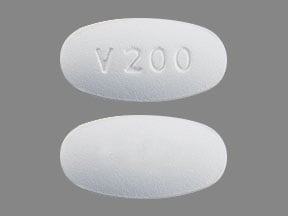
Voriconazole Coupons & Savings Card – Discount Prices from $66.97
Generic for: Vfend
My prescription
Edit
200MG, Voriconazole (60 Tablets)
Select pharmacy

CVS
$66.97
COUPON PRICE
Walgreens
$110.40
COUPON PRICE
Walmart
$133.92
COUPON PRICE
Albertsons
$135.41
COUPON PRICEVoriconazole savings card
Show this card to your pharmacist
CVS
$66.97
BIN
ID
PCN
GRP
019876
LHF13859D4
CHIPPO
LHX
Powered by
More prescriptions for thrush
More prescriptions for thrush
Price history for Vfend (brand) & Voriconazole (generic)
60 Tablets, 200MG
Average retail price for Vfend
Average retail price for Voriconazole
Average SaveHealth price for Voriconazole
Our price history data is based on aggregated prescription data collected from participating pharmacies in America. Our prescription data updates daily to reflect the latest price changes. If you notice a missing data point, it means there wasn't sufficient data available to generate a monetary value for that date.
We analyzed Voriconazole prices for (200MG, 60 Tablets) over the last 12 months. The average retail price was $103.05, while the average price using the SaveHealth discount card was $97.90. That's a savings of approximately 5.00% when using our Voriconazole coupon.
Compared to the generic version, Vfend had an average price of $1128.61 over the same time period. With the SaveHealth savings card, Voriconazole is 91.33% cheaper on average than Vfend.
*Retail prices are based on pharmacy claims data, and may not be accurate when we don't have enough claims.
Voriconazole dosage forms
Dosage Quantity Price from Per unit 50MG 1 Tablet $5.06 $5.06 50MG 30 Tablets $24.96 $0.83 50MG 60 Tablets $31.63 $0.53 200MG 60 Tablets $66.97 $1.12 200MG 1 Tablet $4.69 $4.69 200MG 20 Tablets $34.52 $1.73 200MG 30 Tablets $42.64 $1.42
| Dosage | Quantity | Price from | Per unit |
|---|---|---|---|
| 50MG | 1 Tablet | $5.06 | $5.06 |
| 50MG | 30 Tablets | $24.96 | $0.83 |
| 50MG | 60 Tablets | $31.63 | $0.53 |
| 200MG | 60 Tablets | $66.97 | $1.12 |
| 200MG | 1 Tablet | $4.69 | $4.69 |
| 200MG | 20 Tablets | $34.52 | $1.73 |
| 200MG | 30 Tablets | $42.64 | $1.42 |
